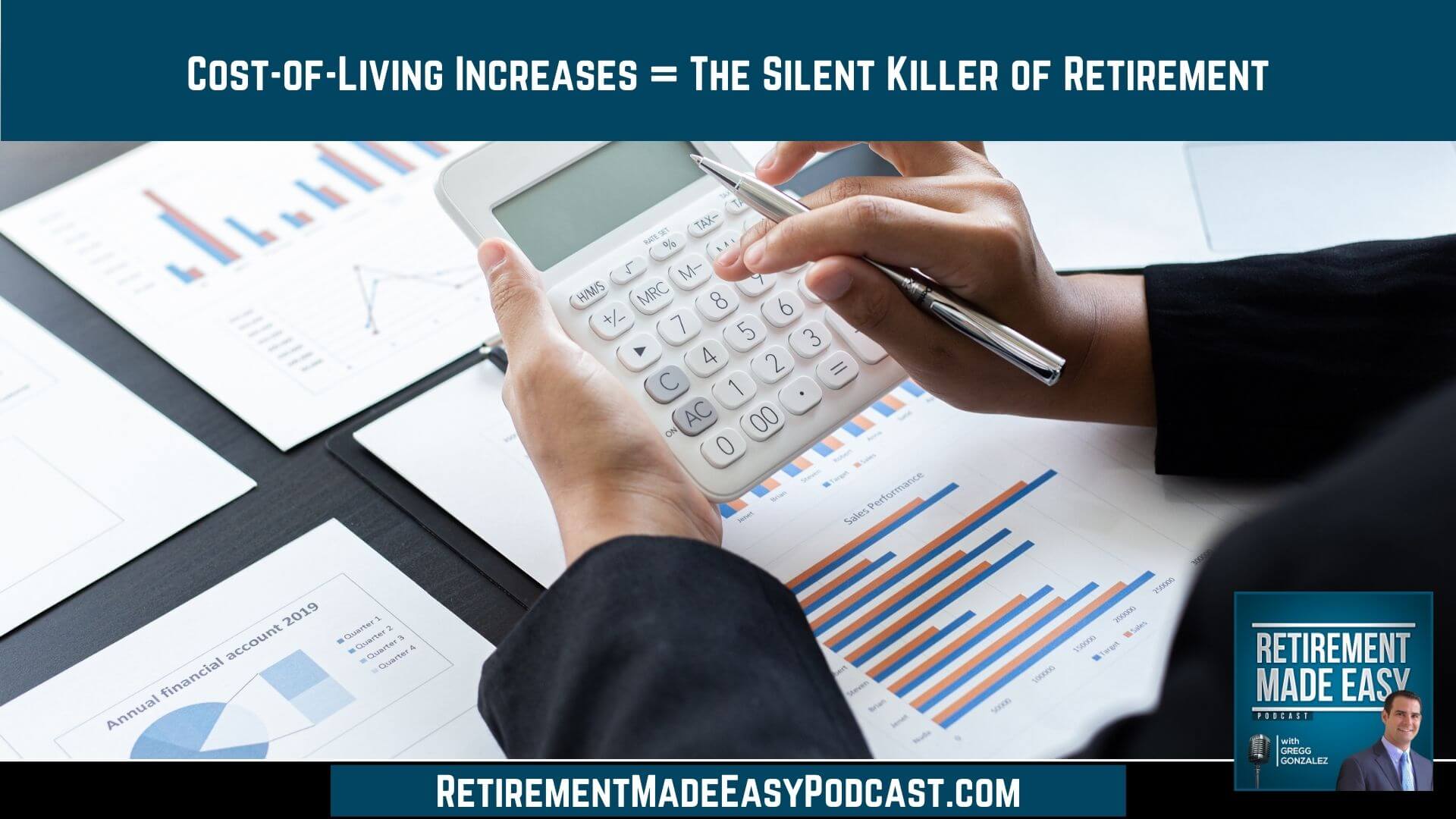
I received a phone call this week from a listener that I thought was absolutely crucial to share with my listeners. She had gone to a retirement seminar that I gave over 10 years ago. She didn’t take my advice then and regrets it now. Why? Almost 11 years later, she’s almost 76 and is looking for a part-time job to cover her expenses. What did I share in that seminar? Listen to this episode of the Retirement Made Easy podcast to find out!
You will want to hear this episode if you are interested in…
- [0:39] Check out the FREE resources on my website!
- [3:23] How to avoid being a Walmart greeter in retirement
- [11:15] What can we learn from this listener’s situation?
You must factor in how long you’ll live
This wonderful lady I spoke with had been retired for a year when she attended my workshop about retirement planning. The big thing that people don’t realize is that the average age of the American retiree is 62. Imagine a 62-year-old non-smoking couple. How long will they live once they retire? Research shows that their joint life expectancy is 30 years. I pointed out in my seminar that you have to look at the past. What were prices like 30 years ago in1991? You need to understand that you’re not going to be retired for only 5–10 years but more like three decades.
You need to be aware that the cost of living will always increase, even in retirement. While you’re still working, income increases, promotions, etc. allow you to keep up with the cost of living. You may not even notice that the cost of auto insurance, cell phone bills, groceries, stamps, etc. is rising. When you retire, it’s a whole different ball game. You are on a fixed income that will likely never increase. Your expenses will never be fixed for the rest of your life.
Why you have to prepare for cost of living increases
This Gal didn’t realize she was setting herself up for failure. Her husband had a fixed $1,800 a month pension that didn’t have a cost of living adjustment. The cost of living and inflation wasn’t being factored in—and she wasn’t prepared for it. Her property taxes are 80% higher than they were 10 years ago. Every item on her entire budget is far higher than they were. Now that he’s passed, she only has her social security and his pension.
Even worse, she had invested her 401k very conservatively and it’s grown very little (2% a year). Inflation has eaten away her fixed income. To offset inflation, she’s drawn more and more from the 401k, which is now only growing at 0.1% of interest. She’s having to draw 9% to supplement her lifestyle. Her account is shrinking by 8.75% per year. In 11.5 years, it will be completely depleted. She’s applied for a job as a Walmart greeter to help cover her living expenses.
Cost of living increases = the silent killer of retirement
If you don’t pay attention to where your money is going, how much you’re spending, and the increasing costs of living you will be in trouble down the road. Nothing is scarier than being in your mid-70s and realizing you’ll run out of money. What if you have to go back to work? How long will you have to go back to work? Can you cut expenses in your monthly spending? This listener has cut everything possible, short of groceries.
Where did she make her fatal mistake? She should have invested her money so that it could exceed the cost of living. If the cost of living increases 3–4% a year on average, she would need to invest her savings so it’s growing at a return of at least 3–4% to keep up. It would be even better if it was growing by 5–7%.
If you want to make sure that you don’t run out of money in retirement, you need to have a plan. I recommend that you start by listening to The Retirement Bucket Strategy, outlined in episode #24. Then you need to build a plan that keeps up with the cost of living. 30 years from now your expenses will be much higher. We will likely never see prices decline or flatline.
Resources & People Mentioned
- Episode #6: The Retirement Story Everyone Needs to Hear
- Episode #24: The Retirement Bucket Strategy
Connect With Gregg Gonzalez
- Email at: Gregg@RetireSTL.com
- Podcast: https://RetirementMadeEasyPodcast.com
- Website: https://StLouisFinancialAdvisor.com
- Follow Gregg on LinkedIn
- Follow Gregg on Facebook
- Follow Gregg on YouTube



